Fair game or unnecessary? The dark arts of blocking the road
'Blocking the road properly is part of the job' says Monfort
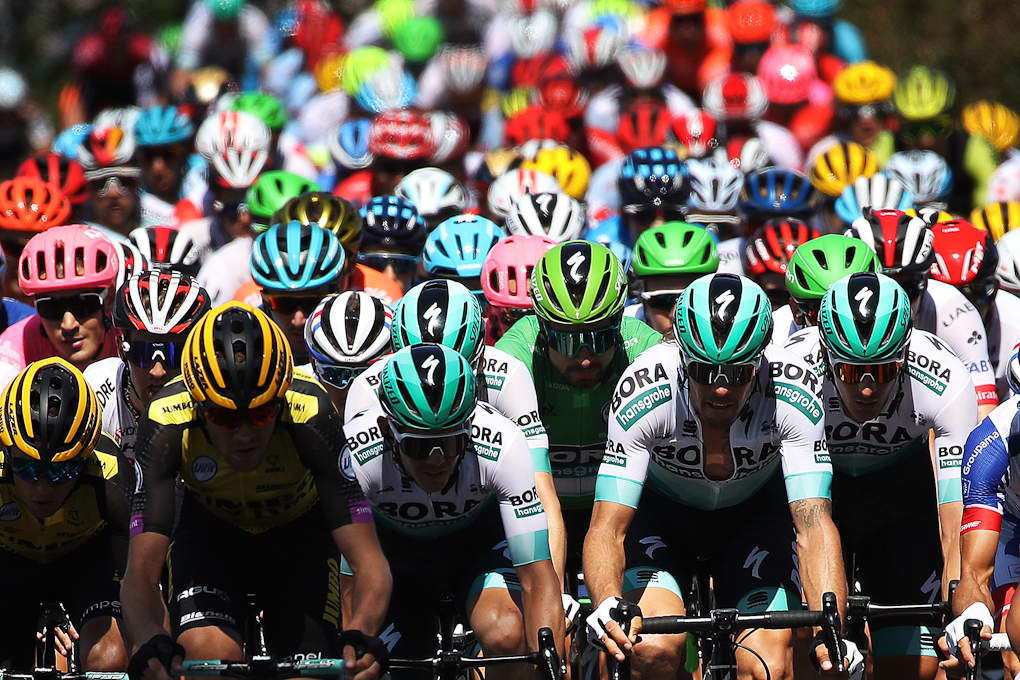
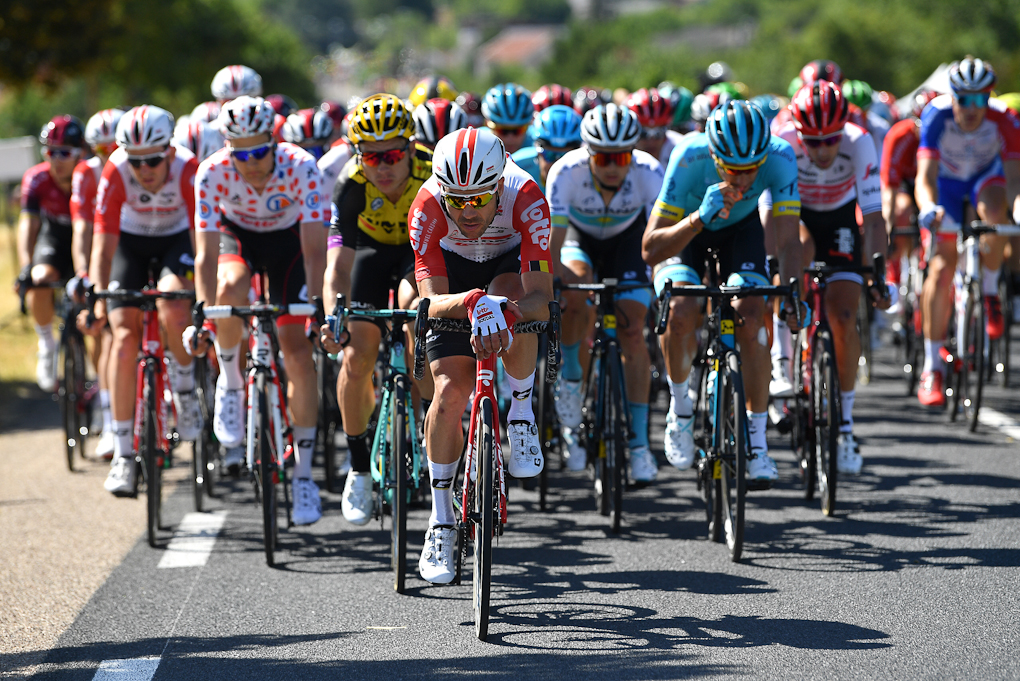
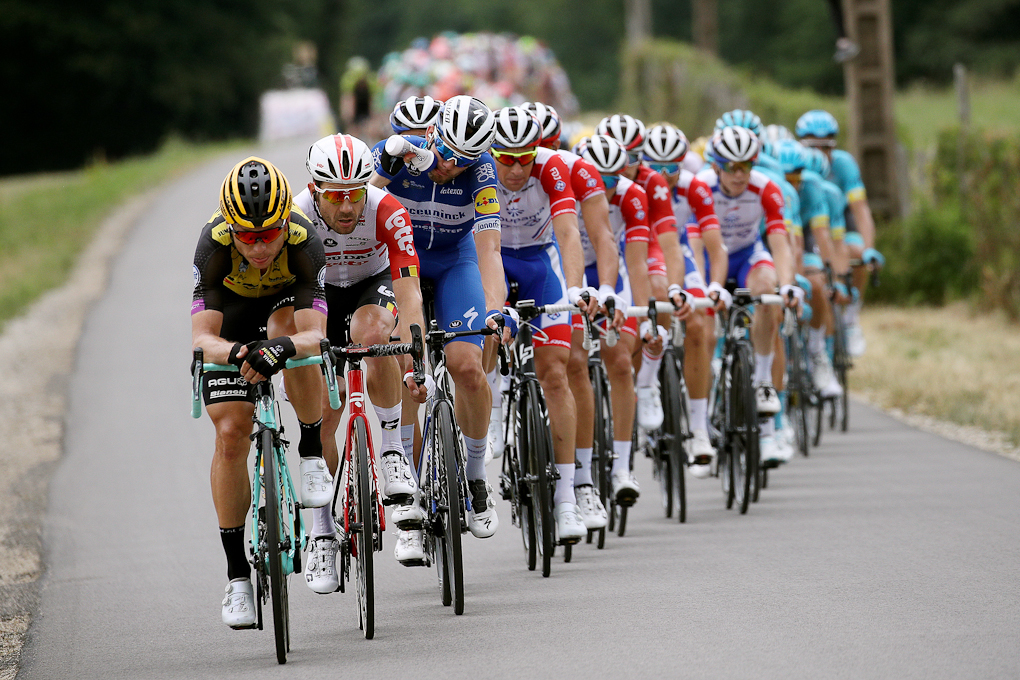
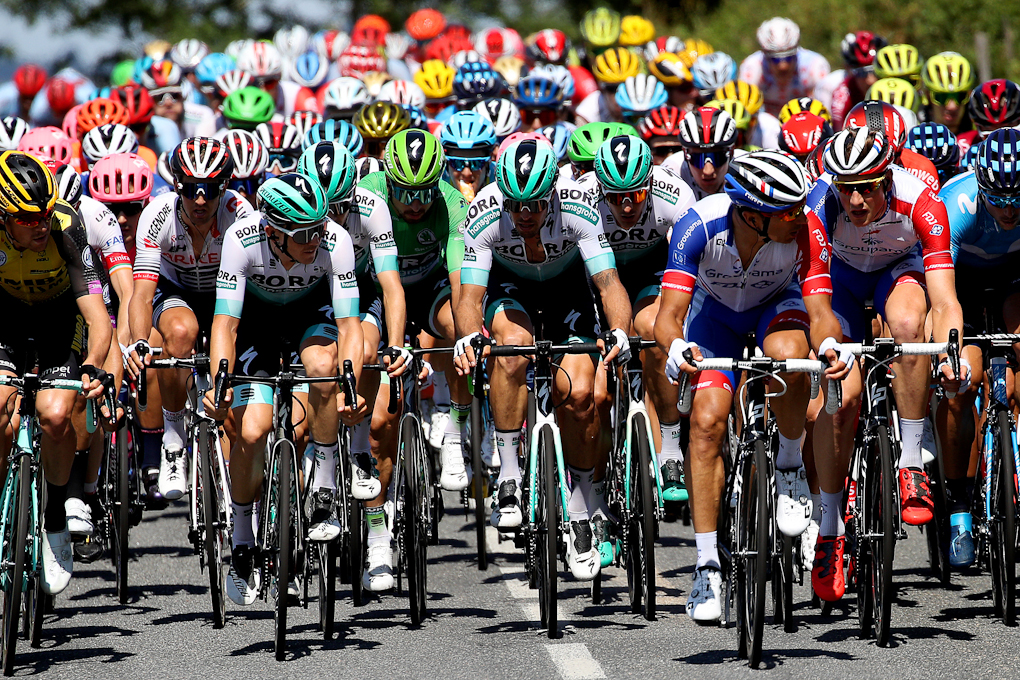
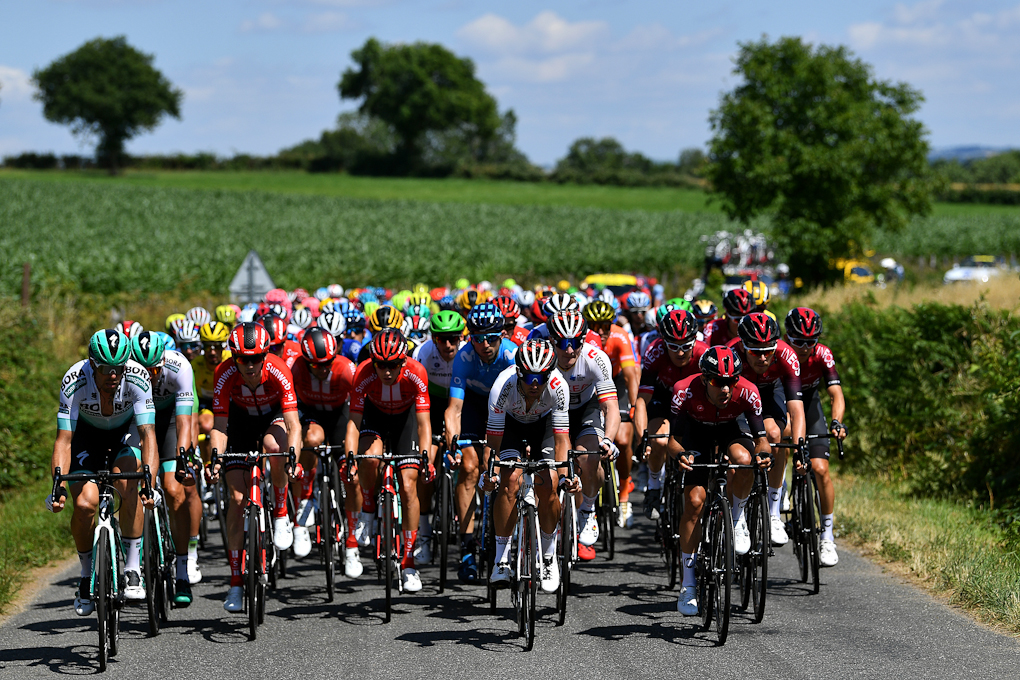
The last couple of commissaires' reports from the 2019 Tour de France have contained a couple of interesting sanctions. Amid the usual fines for illegal feeds and overly public toilet stops, we've seen the UCI reach deep into its regulations for Article 2.12.007/6.1: 'Obstruction from a rider to stop the progress of another rider'.
Chad Haga blog: Rest day recollections of an eventful Tour de France
Tour de France 2019 stage 11 finish line quotes
Matthews gives up on Tour de France green jersey
Caleb Ewans sprints to his first Tour de France win - Video
Lotto Soudal jump onto the Jumbo train to deliver Ewan's first Tour de France win
Tour de France: Indurain blames Landa's crashes on poor positioning
After Monday's stage 10 to Albi, George Bennett (Jumbo-Visma) and Yves Lampaert (Deceuninck-QuickStep) were each fined 500 CHF – as well as being docked 10 seconds and six points – for obstructing Chad Haga (Team Sunweb).
On Wednesday, after getting hold of more video footage, the UCI decided to issue Lampaert’s teammate, Kasper Asgreen, with the same punishment for a similar incident on Haga's teammate Cees Bol on the same day. In addition, three directeurs sportifs – Tom Steels (Deceuninck-QuickStep), Nico Verhoeven (Jumbo-Visma) and Philippe Mauduit (Groupama-FDJ) were given official warnings regarding the same matter.
The practice in question is that of 'blocking the road', whereby teams try to prevent attacks from the peloton by taking up as much space as possible on the front row. It usually occurs in the opening kilometres, when a breakaway forms and the controlling forces in the peloton – on flat stages, these are the sprinters' teams – want to settle down for the day instead of reacting to new waves of attacks.
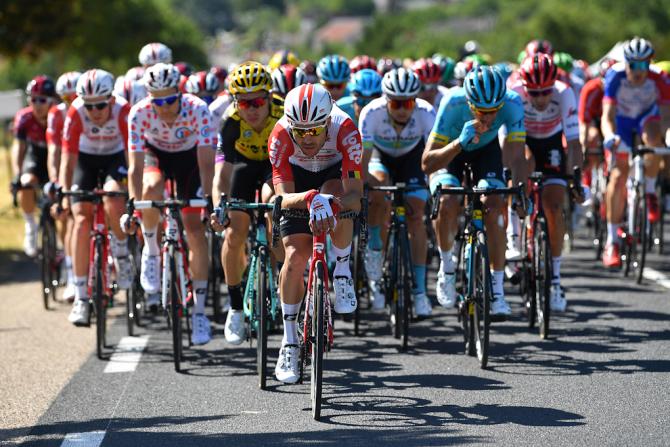
Maxime Monfort on the front of the Tour de France peloton (Getty Images)
"It's a new tactic that I didn't know existed," CCC Team manager Jim Ochowicz told Cyclingnews, explaining that the relative lack of abandons at this Tour has been a contributing factor.
"If there were 20 riders out by now, the peloton's smaller and you can do different things. They can block the road now. You can't get through it. People should be allowed to race, they have a right to race, and it's like putting a barricade across the road. It’s not fair."
The latest race content, interviews, features, reviews and expert buying guides, direct to your inbox!
The tactic has perhaps become more apparent in the age of wall-to-wall television coverage of Tour de France stages. At this Tour de France, it has caused a stir in the past couple of days due to the actions of Bennett, Asgreen and Lampaert, which many – even those who regard it as fair game – felt was a step too far.
Team Sunweb were trying to fire attacks after the break had formed on stage 10 in a bid to make the race as hard as possible in the interests of Michael Matthews. Video footage clearly shows Haga trying to move past on the gravel, just on the side of the road, at which point Bennett and Lampaert both accelerate and move across to block him off. In a separate incident, Asgreen appears to barge shoulders with Bol, who is forced off the road and onto the gravel.
Asgreen denied trying to steer Bol away, insisting he'd leaned over to correct his balance after the pair had brushed shoulders. For his part, Bennett accepted culpability and said his fine was "probably pretty deserved".
He explained that he was just doing his job, as dictated by his team, even if he hinted it didn't exactly sit comfortably.
"I have mixed feelings about it," Bennett said on Wednesday. "I mean, our team says it's a great move, you really stop the guys - they could have opened a can of worms and the break could have taken more time and we wouldn't have won the stage, whatever. As far as the team's concerned, they'd take quite a lot of fines for a stage win, it's not a biggie.
"I was really getting a lot of communication over the radio, 'Watch out, the guy on the right is pushing on your back, you've got to stop him'. I don’t know, it's not really how I like to race, but it's me doing a job. Ideally I'd not be in that position doing something like that."
When does 'doing ones job' spill over into unfair play? As Wanty-Gobert directeur sportif Steven De Neef says, "It's difficult to know what's blocking and what's not."
One rider who's well versed in the arts is Maxime Monfort (Lotto Soudal), one of the three chief breakaway controllers in this Tour, alongside Asgreen and Tony Martin (Jumbo-Visma). He describes it as a basic function of modern cycling, but was disappointed with the lengths to which Bennett and Lampaert took it.
"When three or four teams agree to not let go more than four guys, like today, then we can block the road, you could say. It’s part of modern cycling for me. We just stand together in front, with us, Ineos, Deceuninck and Jumbo, and then it’s enough riders to block the road, and that’s how it is," Monfort told Cyclingnews.
"For myself, I never pushed somebody. That’s too much. We never have to go to that point, but actually blocking the road properly is part of the job."
From the victim’s perspective, Haga saw Bennett's and Lampaert's actions as 'part of the road block game' but also felt the level of aggression was 'unnecessary'.
"Sometimes guys get a bit too enthusiastic with blocking the road, trying to exert more control than they really have, a practice I refuse to engage in when it's my job to block the road," Haga wrote in his latest blog for Cyclingnews. "Anyway, no harm ultimately came from it and I'm not angry at them, and they got penalised by the jury, so I consider it settled."
Deceuninck-QuickStep, meanwhile, have sought to play down any sense of controversy. Agreen insists he wasn’t trying to block Bol's path and claimed that, in any case, he'd have preferred to let him attack and chase him down. Directeur sportif Geert Van Bondt denied that road blocking is part of team tactics.
"We don't give instructions. We just found out this morning about that situation. It’s not our intention to block the road," he told Cyclingnews.
"My personal opinion, it’s always a difficult point, because if you see today, other teams come to the front and are also blocking the road. So many teams are doing it. Did we do it on purpose? I don’t think so.
“Where do you draw the line? Tomorrow we go into the mountains, and maybe Ineos are going to block the road. Do we also give the penalties for this? What’s fair and what’s not fair? Do we have to find bigger roads, where you can pass easier? It’s always a tricky point."
Over at Wanty-Gobert, a team that subsists on breakaways, it can seem frustrating when the sprinters' teams are so controlling. De Neef wonders why Lotto, QuickStep, and Jumbo have been so stingy with the rope they've given breakaways so far, but doesn't have a problem with road blocking.
"It's bad if you really use your body, but if you just sit in the front you don’t have to let them past," he said. "That’s also part of the game, to be in a good position. I you’re just sitting in the front and someone wants to pass, my opinion is you don’t have to let them pass.
"Everyone has to play his tactic,"he said. "I don’t have a problem with it. The sprint teams have to handle their mission and, OK, today they won, so that’s OK. That’s cycling."
Patrick is a freelance sports writer and editor. He’s an NCTJ-accredited journalist with a bachelor’s degree in modern languages (French and Spanish). Patrick worked full-time at Cyclingnews for eight years between 2015 and 2023, latterly as Deputy Editor.
